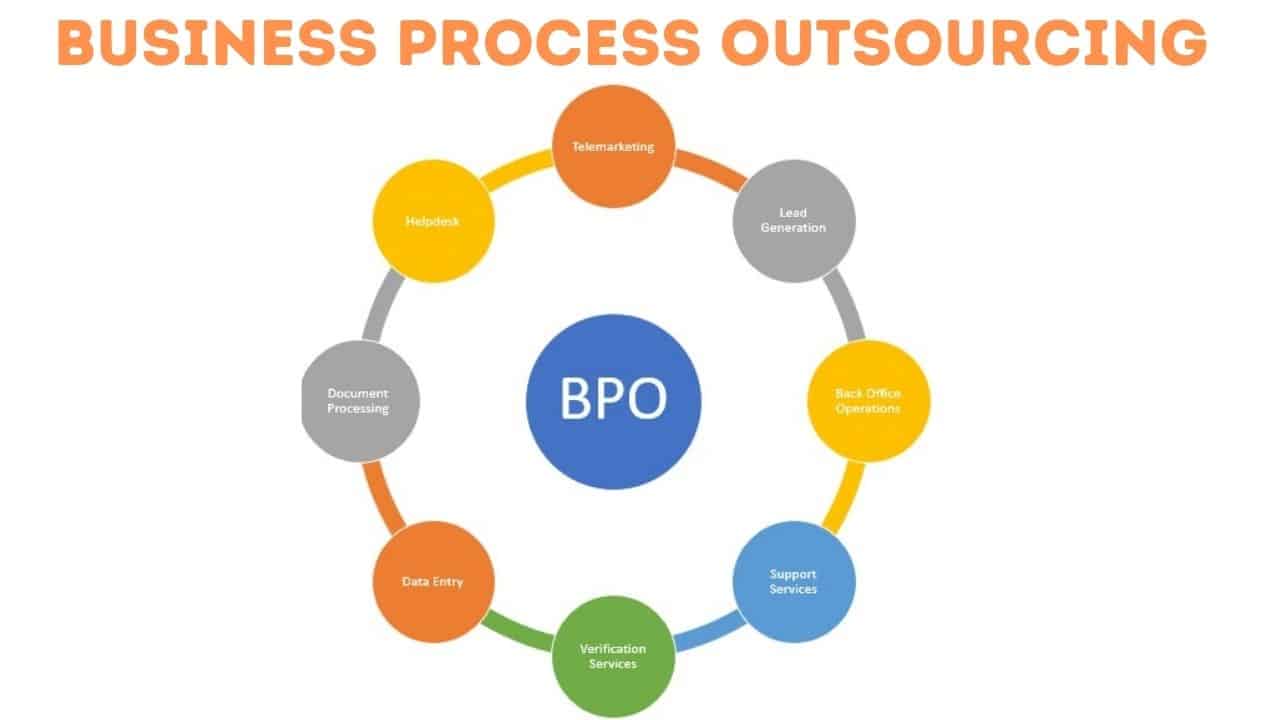The term “customer service” serves as a catch-all for the entire interaction a customer has with your company, its goods, or services. This includes pre-sales interactions, the sales or purchasing process, and post-sale customer support. Although it is always been essential to business, providing excellent customer service is now more crucial than ever. With so many options available, consumers have high expectations of brands. Several skills are necessary for customer service representatives to succeed. Additionally, they also use various types of customer service methods in boosting interactions with clients. Every step of the customer’s journey, from the initial contact to the time after the sale and beyond, must take into account the needs of the customer.
Brands must step up and deliver excellent customer service that meets customer expectations, or else they risk falling behind the competition. Customer service skills are more important than ever, given how competitive the business world is getting. Customers demand high levels of care and support from companies in addition to high-quality goods and services.
Customer Service
Assisting and advising customers before, during, and after a purchase is what is referred to as providing customer service. Customer satisfaction, brand loyalty, and revenue growth all go hand in hand. It is a continuous action taken to assist clients as they navigate and engage with a brand’s good or service.
The lifecycle of a customer and their loyalty depend on good customer service. Sales and service must be able to collaborate in real-time and effectively (and securely) share information about each customer to gain insights and comprehend what consumers expect from them.
Every person has a unique experience with customer service. Some customers may make their purchase right away and leave, while others might come back with a problem or a query. In either case, the goal of providing excellent customer service is to maximize every opportunity for communication and forge enduring bonds with your clients.
Types of Customer Service Channels
By using an omnichannel customer service strategy, you can connect with your customers wherever they are and communicate consistently across all channels. Regardless of the platforms you employ, it is critical to provide thorough support and facilitate a smooth customer communication experience.
Among the most well-liked types of customer service methods that representatives use are:
#1. Phone Calls
One of the most popular types of customer service that representatives use is phone, and companies of all sizes frequently use this method. It makes it possible for clients to contact businesses quickly and easily to ask questions, get assistance, or solve issues. Numerous clients favor phone support because it enables them to communicate directly with a live person and receive prompt assistance.
Social media customer service refers to assisting sites like Facebook, Twitter, Instagram, LinkedIn, WhatsApp, etc. Today, it is necessary to offer support via social media; doing otherwise is not an option. The use of social media is one of the most popular types of customer service amongst representatives. Social media has billions of users, and businesses that do not have a presence there are losing out on thousands of opportunities. Additionally, giving customers support through social media can increase their satisfaction and loyalty because they value how quick and convenient it is.
#3. Email
Another popular customer service types for representatives is the use of email. With more than 4 billion users worldwide, email has grown to be a popular means of communication. Due to this, email support is a well-liked and efficient method for businesses to interact with their clients. Customers can receive written records of their interactions with the company and easily access their previous correspondence with them by using email support. One drawback of email support is that it might take longer than phone support to get a response, and it might not come as quickly.
#4. Live Chat Support
Live Chat Support is given through on-demand online communication, typically via a website or mobile app. It enables clients to get immediate help and support from a live customer service agent, frequently via a chat interface or instant messaging. Customers can make use of this service to get clarification on their inquiries, help using a product or service, or address their concerns and issues. Live chat support is one of the new type of customer service method that representatives use in 2023. Customers find it to be a very practical way to receive support because it enables them to multitask while receiving answers to their questions. It is also a practical way for businesses to offer customer service because it can manage multiple chats at once, increasing productivity.
#5. Video Chat Support
With the ability to see the customer’s screen and provide visual instructions, video chat support can be especially helpful when resolving challenging technical issues. With innovation, video support is another type of customer service method that representatives use. In comparison to trying to explain technical problems over the phone or through text-based chat, this can be significantly more effective. Additionally, video chat support enables the agent to remotely access the client’s device and conduct a direct investigation of the issue. Both the customer and the representative may benefit greatly from this in terms of time and effort.
#6. Self-Service
Self service is another type of brand new customer service method that businesses now now use. Customers can use self-service tools to find answers to their questions, including knowledge bases and discussion forums. A self-service knowledge base is a repository of articles, frequently asked questions (FAQs), and other resources that customers can use to independently research issues and find solutions without having to get in touch with customer support. Reduce the number of support requests, increase customer satisfaction, lower support costs, increase customer trust, and many other advantages are provided by self-service knowledge bases.
Benefits of Good Customer Service
#1. Competitive Edge
Brands that provide exceptional customer service set themselves apart from the competition to increase market share. Customers’ complaints can teach businesses a lot about how to improve their goods or services, and these changes can increase sales.
#2. Spreads Brand Awareness
Brand recognition is essential to a company’s success. The popularity of a company in and of itself is a powerful draw for customers. A content customer will always promote your brand favorably. Your business benefits from happy customers It attracts more customers, which can accelerate the growth of your company. In the end, it draws more investors, highly qualified workers, and of course, more clients.
#3. Increased Customer Loyalty
Enhancing customer satisfaction, promoting repeat business, and fostering positive word-of-mouth marketing are all possible with good customer service. Customers are more likely to stay loyal to a company and keep doing business with them if they believe that their needs and concerns are being heard and met. It may increase sales, recommendations, and client loyalty. Furthermore, it can help to establish a good reputation for the business and produce a competitive advantage that clients cannot find elsewhere.
#4. Positive Brand Reputation
Excellent customer service has the side effect of enhancing brand reputation. Positive word-of-mouth results from satisfied customers who are more likely to tell others about their experiences. For the business, this can be a valuable asset and aid in building a solid brand reputation. A good reputation can draw in new clients and aid in keeping hold of current ones, resulting in increased revenue. A company’s ability to attract and keep top talent as well as strengthen its negotiating position with suppliers can benefit from a strong brand reputation.
#5. Enhance Sales
Continually offering top-notch customer service can encourage customers’ trust and loyalty, which can result in repeat business and favorable word-of-mouth promotion. This may support the company’s efforts to draw in more clients and boost sales. Customers are more likely to choose a company over rivals when they are confident that they will receive high-quality service every time they deal with it, which can help businesses gain a competitive edge.
#6. Cost Savings
Customer retention and long-term financial savings are both possible with good customer service. Since it takes fewer resources to market to an existing clientele who is already familiar with the company, keeping an existing clientele is typically less expensive than finding new ones. Additionally, happy customers are more likely to buy more from the company and make repeat purchases, both of which can reduce costs. Additionally, providing excellent customer service can help businesses avoid expensive disputes, complaints, and bad press that could harm their reputation and drive away more customers.
#7. Employee Satisfaction
One of the most crucial aspects of any company is employee satisfaction. To maximize productivity, lower turnover, and boost office morale generally, it is critical to have content and happy workers. Employee satisfaction can rise as a result of providing excellent customer service because they feel valued and appreciated by the business. Employee motivation and engagement are more likely to be high when they believe their efforts are having a positive effect on both customers and the business.
#8. Upsell Products
Upselling can result from providing excellent customer service. Customers are more receptive to recommendations and suggestions for extra goods and services when they have a positive experience and trust a company. A customer service agent who has received adequate training and who is knowledgeable about the company’s goods and services can provide customers with tailored recommendations and convince them of the benefits of getting more goods or services. A rise in sales and revenue for the business may result from this.
Customer Support Skills
The traits and skills necessary for providing excellent customer service are known as customer service skills. They combine hard skills with soft skills.
#1. Empathy
Empathy is one of the valuable customer service skills to have. Being defensive in response can exacerbate an irate customer’s situation. Instead, reassure them that you are conscious of their circumstance and ready to help in any way. Customers who are unhappy, perplexed, or even happy, experience the same thing. Relationships are bred by empathy.
#2. Active Listening
You can gain a deeper understanding of your client’s thoughts, needs, and desires by actively listening to them. Active listening is a very important customer service skills and it involves listening intently while also observing the speaker’s body language and tone of voice. Wait for them to finish speaking before thinking of a reply.
#3. Clear Communication Skills
To provide customers with accurate and comprehensive information, it is crucial to communicate clearly and concisely. In addition to verbal communication, this also refers to written and nonverbal forms. To improve customer service, engage in active listening to improve your communication skills, and make an effort to comprehend your client’s needs. Avoid using jargon or other technical terms that could mislead customers by using clear, straightforward language. Empathize with and show interest in what customers are saying by using your body language.
#4. Problem-Solving and Critical Thinking Skills
These abilities are crucial for accurately identifying and quickly resolving customer issues. Customer service agents need to be able to research issues, gather data, and assess potential solutions. to hone information-gathering and analysis skills, practice critical thinking, and assess the benefits and drawbacks of various solutions. Collectively, come up with innovative answers to the issues that customers are experiencing.
#5. Transparency
The last thing a customer wants to do when contacting support is sit on hold for an hour. As a result, if your customer service team is overworked, let customers know how long they can anticipate waiting. You might also think about implementing a callback system, where an agent will contact or message a client when they are free, saving them from having to wait on hold.
#6. Multitasking Ability
Live chat representatives are expected to manage multiple conversations at once, listen to each client, and then find the solution. This in itself requires skill. When asked a lot of questions, great multitaskers remain focused on the bigger picture and feel at ease talking to several people at once.
#7. Attentiveness
Even if you are unable to meet a customer’s needs right away, you can still make them feel seen and heard by confirming their request and promising to help them as soon as you are able. This could entail responding to their email and promising a more thorough response later, or responding to a disgruntled client on social media and requesting more details via DM.
#8. Emotional Intelligence
The capacity to understand and manage your emotions is known as emotional intelligence. This can entail being aware of when you are about to become upset, sad, afraid, flustered, or any other strong emotion, and responding appropriately. For customer service representatives, having high emotional intelligence is essential because it can support them in keeping their composure under pressure and their emotional well-being.
#9. Creativity
Despite your best efforts to plan for everything, a customer will unavoidably have a unique need or question. Thinking creatively is essential in these situations. Your agents must be able to think quickly, ascertain the customer’s true needs, and then devise an original solution to satisfy those needs.
#10. Patience
Customer service representatives must possess the virtue of patience. Different customer types can frequent a company, and not all of them have the same level of education. As a result, the representative must exercise patience when dealing with such clients because their frustration may irritate a current or prospective customer.
Importance of Customer Support
Customers can now more easily research, compare, and share their experiences with others about goods and services thanks to the internet and social media. Because of this, there is now more competition between businesses, and customers have high expectations for convenience, variety, and personalization. Businesses need to be able to adapt to their customer’s changing needs and expectations if they want to remain competitive. This includes offering top-notch customer service, which can support attracting and retaining clients while fostering loyalty and trust.
Increased customer satisfaction, good word-of-mouth, repeat business, improved problem-solving, cost-effectiveness, improved reputation, satisfied employees, and a better understanding of customers’ needs are all benefits of providing excellent customer service. It is a crucial component of the customer experience and can determine whether a customer decides to work with a company or not. Additionally, it can result in greater employee motivation and satisfaction because doing a job well makes employees feel proud of themselves.
What Are the Important Skills of Customer Support?
Personalization, convenience, effective communication, patience, practicality, problem-solving, and proactiveness are cornerstones of top-notch customer service. These factors have the biggest impact on the customer experience.
What Is Your Definition of Best Customer Service?
To provide good customer service, expectations must always be met. Excellent customer service is quick, straightforward, individualized, and compassionate. Excellent customer service-oriented companies put in the time to fully understand the requirements of their target market. Being on time, resolving issues, being accessible, and being sensitive to the needs of the customer are all characteristics of good customer service.
What Would a Good Customer Service Interview Question Look Like?
- Please describe a time when you were able to resolve a customer’s issue.
- What, in your opinion, constitutes good customer service?
- Tell me about a time you dealt with an irate customer who kept speaking angrily to you. How did you effectively manage that circumstance? What was the result?
How Can I Improve My Customer Service Skills?
- Engage in active listening: Pay attention to what your clients are saying and act as though you are participating in the conversation.
- Demonstrate empathy by imagining yourself as one of your customers and taking it from that angle.
- Clear and effective communication Make sure your audience comprehends what you are saying and has access to all the necessary information.
- Maintain composure under pressure: Customers often come to you with issues, so it is critical to act professionally and calmly throughout difficult circumstances.
- Continuous learning Keep abreast of business trends and ideal procedures and be eager to pick up new skills and improve existing ones.
What Are the Latest Trends in Customer Service?
- Artificial intelligence and chatbots: These technologies are gaining popularity for their ability to offer quick and effective customer service.
- Personalization: Companies are using data and technology to provide the personalized experiences that customers have come to expect.
- Self-service options: Online forums and knowledge bases are two examples of the self-service options that customers are increasingly looking for.
- Video support: As a means of enabling clients to receive assistance and support immediately, video support is growing in popularity.
Conclusion
Effective customer service ensures brand loyalty one customer at a time, which is essential for business success. Customer service is the assistance you provide your clients from the time they make their initial contact with your company until years and decades later. In addition to assisting them in using and troubleshooting your product, good customer service also entails being a trustworthy partner to your clients. Today, one of the best ways for businesses to gain a competitive advantage is by offering their customers high-quality services.
In today’s competitive business climate, a company’s capacity to set itself apart from competitors by providing top-notch customer service can be a key differentiator. More options are available to customers than ever before, and if they are dissatisfied with the level of service they receive, they are not hesitant to switch to a rival.
Related Articles
- CUSTOMER SATISFACTION: Ways to Boost Customer Satisfaction
- How Customer Support Can Increase Customer Satisfaction
- CUSTOMER FEEDBACK: The Only Guide You Will Ever Need






